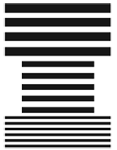To celebrate ANZSI National Indexing Day this year, a special Zoom session featuring Juliet Richters and Mary Coe will be presented on
Thursday 31 March at:
12:00 -1.30pm NZDT – New Zealand
10:00 -11:30am AEDT – ACT, Victoria, NSW
9:30 -11:00am ACDT – South Australia
9:00 -10:30am AEST – Queensland
7:00 – 8:30am AWST – Western Australia
10:00 -11:30am AEDT – ACT, Victoria, NSW
9:30 -11:00am ACDT – South Australia
9:00 -10:30am AEST – Queensland
7:00 – 8:30am AWST – Western Australia
Please contact Sherrey Quinn (secretary@anzsi.org) to register your interest in attending. This event is free to all ANZSI members.
Session 1 – Using ‘soft marketing’ to build your indexing business (Juliet Richters)
I hate ‘marketing’. This talk is not about marketing techniques like advertising or maximising the number of hits on your website. It’s about how to get known, and get work, using more subtle techniques, some of which I acquired while I was an academic. I’ll talk about:
- getting your name known
- getting discovered when searchers don’t know your name
- having friends and colleagues who will recommend you
- finding people who need indexes, especially if you have topic expertise.
The aim is that people who need an index will find you somewhere, and preferably in several places.
Juliet Richters
I got my first indexing jobs in 1981 from publishers I had done editing for. I had no formal indexing qualifications and taught myself by studying good (and bad) indexes and G. Norman Knight’s 1979 book Indexing, The Art of. Later I submitted an index for accreditation as a registered indexer by what was then AusSI, the Australian Society of Indexers. The books I indexed were in fields as varied as law, entomology, botany, theatre, cookery, health and medicine, sexuality, education and industrial relations. From the 1990s I worked as an academic, but I continued to do indexes for extra money or as part of my academic role. In 2017 I went back to full-time freelancing, so I got accredited by the Institute of Professional Editors and re-accredited by ANZSI as an indexer.
I got my first indexing jobs in 1981 from publishers I had done editing for. I had no formal indexing qualifications and taught myself by studying good (and bad) indexes and G. Norman Knight’s 1979 book Indexing, The Art of. Later I submitted an index for accreditation as a registered indexer by what was then AusSI, the Australian Society of Indexers. The books I indexed were in fields as varied as law, entomology, botany, theatre, cookery, health and medicine, sexuality, education and industrial relations. From the 1990s I worked as an academic, but I continued to do indexes for extra money or as part of my academic role. In 2017 I went back to full-time freelancing, so I got accredited by the Institute of Professional Editors and re-accredited by ANZSI as an indexer.
Session 2 – Whom should we aim to please when creating ebook indexes? (Mary Coe)
In an article published twenty years ago in The Indexer (1996, 20(1), pp 3-25), Hazel Bell asked ‘Whom should we aim to please?’ She considered the views of users, subjects, authors, publishers, and regulators. Mary Coe reprises this topic with the creation of ebook indexes in mind. Her conclusion is that index users are the people we should satisfy and creating indexes in the new medium of the ebook is a golden opportunity for considering how best to please them.
If you would like to read Hazel Bell’s article before the presentation, it is freely available from the Liverpool University Press website at https://www.liverpooluniversitypress.co.uk/journals/article/65133/
Mary Coe
Mary Coe has been working as an indexer and metadata specialist for over 30 years. She is a PhD student at the School of Information and Communication Studies at Charles Sturt University. Her doctoral research focuses on creation and use of indexes in ebooks. Mary is also Editor of The Indexer: The International Journal of Indexing and ANZSI Education Officer.
